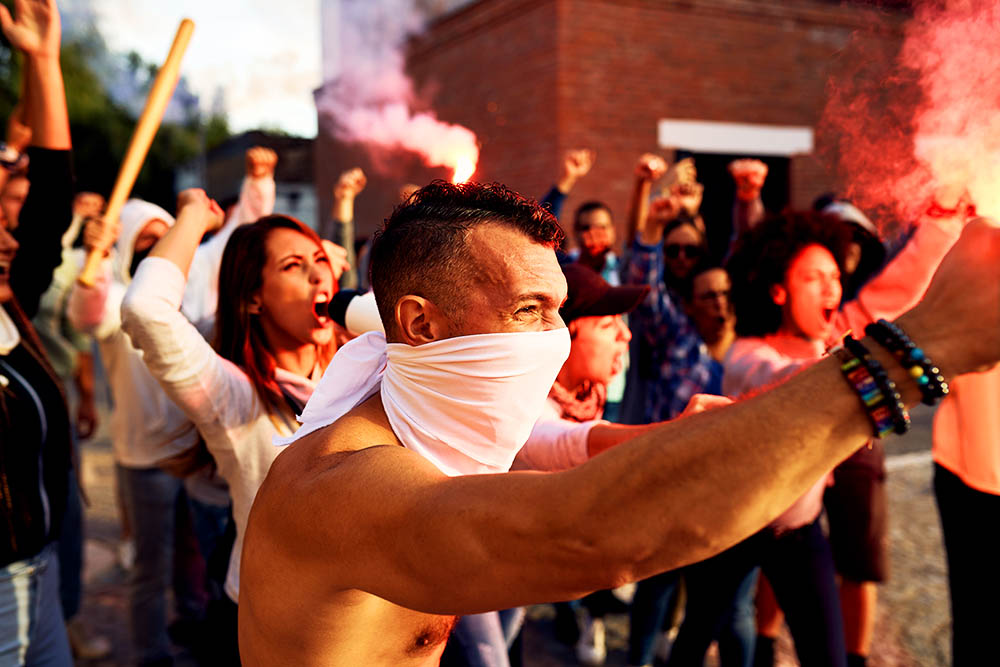Organized crime has been a reality for centuries, and it is a plague that has affected societies around the globe. It is a complex and shadowy network of criminals who operate in secrecy and often use violence to achieve their goals. Organized crime is a global phenomenon, and it can be found in every country and region of the world, from the Italian Mafia to Mexican drug cartels to Asian triads.
Organized crime has many different forms, including drug trafficking, human trafficking, money laundering, prostitution, extortion, and racketeering. It is a multi-billion-dollar industry that has an enormous impact on the world economy, and it affects everyone, from individuals to governments to businesses.
The Dark Side of Organized Crime
Organized crime is a significant threat to society, and it is a problem that requires a multifaceted approach to address. The dark side of organized crime is its association with violence, corruption, and intimidation. Organized crime groups often use violence to eliminate their rivals, and they use intimidation to silence witnesses and law enforcement officials.
Organized crime groups are also known for their corruption of public officials, and they use bribery to protect their illegal activities. They have the power to infiltrate all levels of society, from the local police department to the highest levels of government. Organized crime groups are often able to operate with impunity because they have the resources to bribe or harass anyone who tries to investigate them.
The Impact on the Global Economy
Organized crime is a major threat to the global economy, and it has an enormous impact on businesses around the world. It is estimated that organized crime groups generate more than $2 trillion per year, and this money is not taxed or regulated.
Organized crime affects businesses in many different ways. It can increase the cost of doing business, as companies are forced to pay bribes and protection money to organized crime groups. It can also put legitimate businesses at a disadvantage because organized crime groups often engage in unfair practices, such as counterfeiting and tax evasion. Organized crime groups can also disrupt the supply chain, making it more difficult for legitimate businesses to operate.
The Role of Technology
Technology has had a significant impact on organized crime, both positive and negative. On the one hand, technology has made it easier for law enforcement to investigate and track down organized crime groups. Technology has also made it easier to prevent and detect fraud and money laundering.
On the other hand, technology has also made it easier for organized crime groups to carry out their illegal activities. For example, the internet has made it easier for them to communicate and coordinate their illegal activities. Cybercrime has also become a significant problem, with organized crime groups using technology to steal personal and financial information, engage in online fraud, and carry out cyberattacks.
The Fight Against Organized Crime
Fighting organized crime is not easy, and it requires a multifaceted approach that involves law enforcement, government agencies, and individuals. There are many different strategies that can be used to fight organized crime, and each requires a different set of skills, resources, and tactics.
Law Enforcement
Law enforcement is the frontline in the fight against organized crime, and they are responsible for investigating and bringing organized crime groups to justice. Law enforcement agencies use a range of tactics, including wiretaps, undercover operations, and surveillance to investigate organized crime groups.
In addition to investigating and arresting organized crime members, law enforcement agencies also work to disrupt organized crime groups’ financial networks. By targeting the money trail, law enforcement can make it more difficult for organized crime groups to operate and recruit new members.
Government Agencies
Government agencies also play an important role in the fight against organized crime. These agencies are responsible for implementing laws and regulations that make it more difficult for organized crime groups to operate.
For example, governments can implement stricter regulations on financial institutions and require them to implement robust anti-money laundering policies. Governments can also create task forces dedicated to investigating and prosecuting organized crime groups, and they can allocate the resources needed to combat this problem.
Individuals
Individuals also have a role to play in the fight against organized crime. By educating themselves and being aware of the signs of organized crime, individuals can help to prevent and detect criminal activity. For example, individuals can report suspicious activity to law enforcement agencies, and they can boycott businesses that are suspected of having ties to organized crime.
Conclusion
Organized crime is a complex and shadowy network of criminals that exacts a heavy toll on societies around the world. It is a significant threat to the global economy and affects everyone, from individuals to businesses to governments. Fighting organized crime requires a multifaceted approach that involves law enforcement, government agencies, and individuals.
By implementing robust laws and regulations, disrupting financial networks, and educating the public, we can begin to combat this problem. Organized crime will continue to exist, but it is up to all of us to fight back and make it more difficult for these criminal groups to operate.
